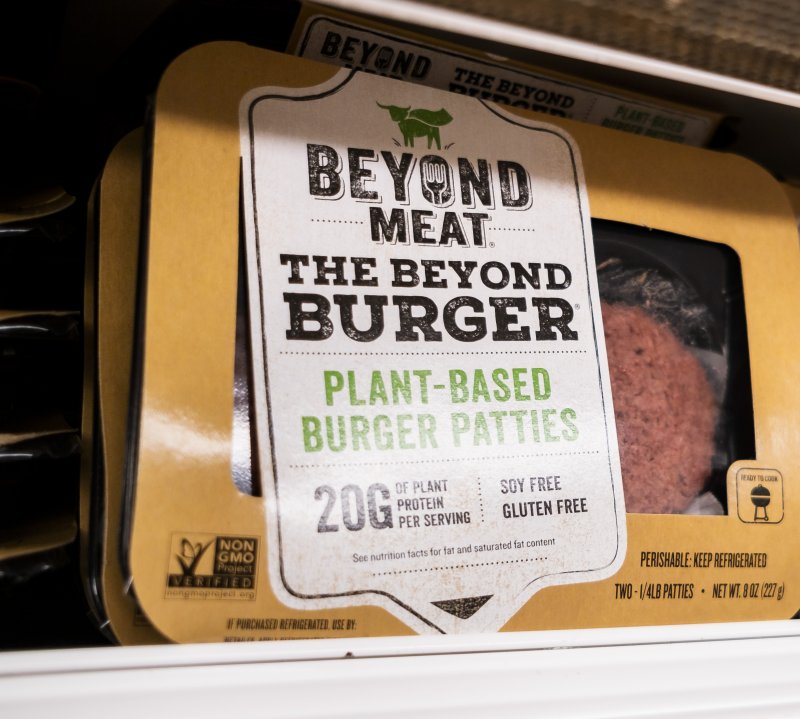A national survey released Thursday found that Americans think if everyone ate a more plant-based died it would reduce global warming "a little." File Photo by Justin Lane/EPA-EFE
Feb. 13 (UPI) -- A national survey published Thursday suggests most Americans think food production affects global warming "a little."
The Yale Program on Climate Change Communication and the Earth Day Network released the survey data in a report titled "Climate Change and the American Diet."
"Food production is among the leading sources of greenhouse gas emissions that cause global warming," generating up to 30 percent of total global emissions, with livestock generating the highest levels of emissions and fruit and vegetables generating the least, the report said.
More than half of U.S. adults surveyed acknowledged that production of beef, pork, dairy and or poultry contributes to global warming at least "a little," but 23 percent said beef does not contribute to global warming at all and 20 percent saying they do not know the impact. Similarly, 23 percent said that dairy products do not contribute to global warming at all and 23 percent said they did not know the impact.
The report indicated many are interested in plant-based diets, but need more information about environmental impact. In light of such information, 51 percent said they would be willing to eat more plant-based foods.
"Many American consumers are interested in eating a more healthy and climate-friendly diet," Yale Program on Climate Change Communication Director Anthony Leiserowitz said in a statement. "However, many simply don't know yet which products are better or worse -- a huge communication opportunity for food producers, distributors and sellers."
Cost, taste, and convenience were cited in the report as barriers to a plant-based diet, with lower-income U.S. adults in particular being more likely to say they lack access to fresh fruits and vegetables at nearby grocery stores and more likely to say it costs too much.
Only 4 percent identified as vegetarian or vegan, but 20 percent said they use plant-based alternatives about two to five times a week or more often. About the same percentage, 21 percent, said they have not bought food products in the last year from food companies not taking steps to reduce their environmental impact.
Half of U.S. adults also said they would be willing to eat more plant-based foods if family and friends ate more plant-based foods instead of meat, but the majority, 70 percent, rarely or never talk to family of friends about environmental impact of foods.
Still, the top motivation for eating plant-based food was health at 91 percent, compared to how food companies affect the environment at 71 percent and helping to reduce global warming at 64 percent.
The report is based on a survey of 1,043 adults with a margin of error of 3 percentage points.















